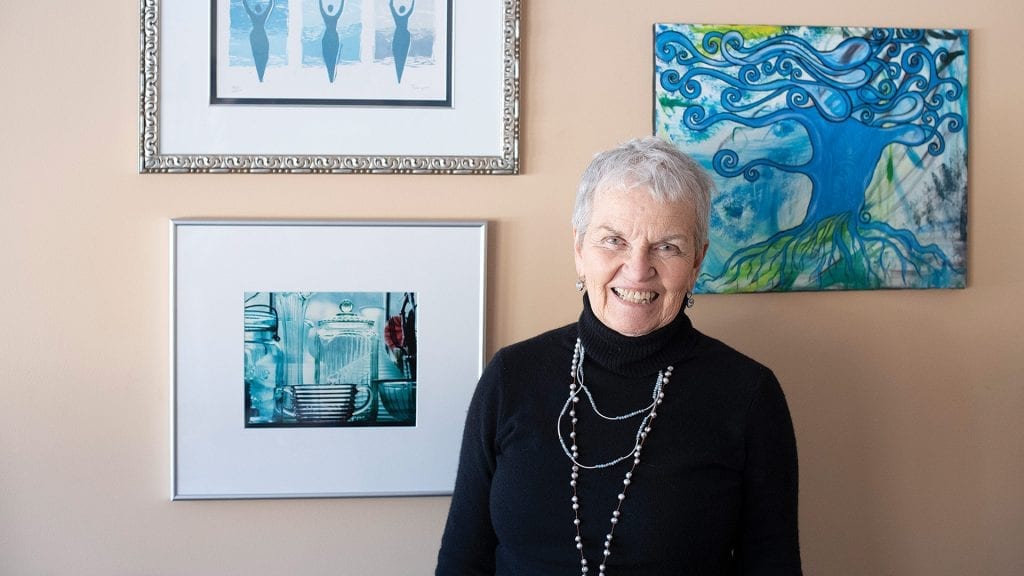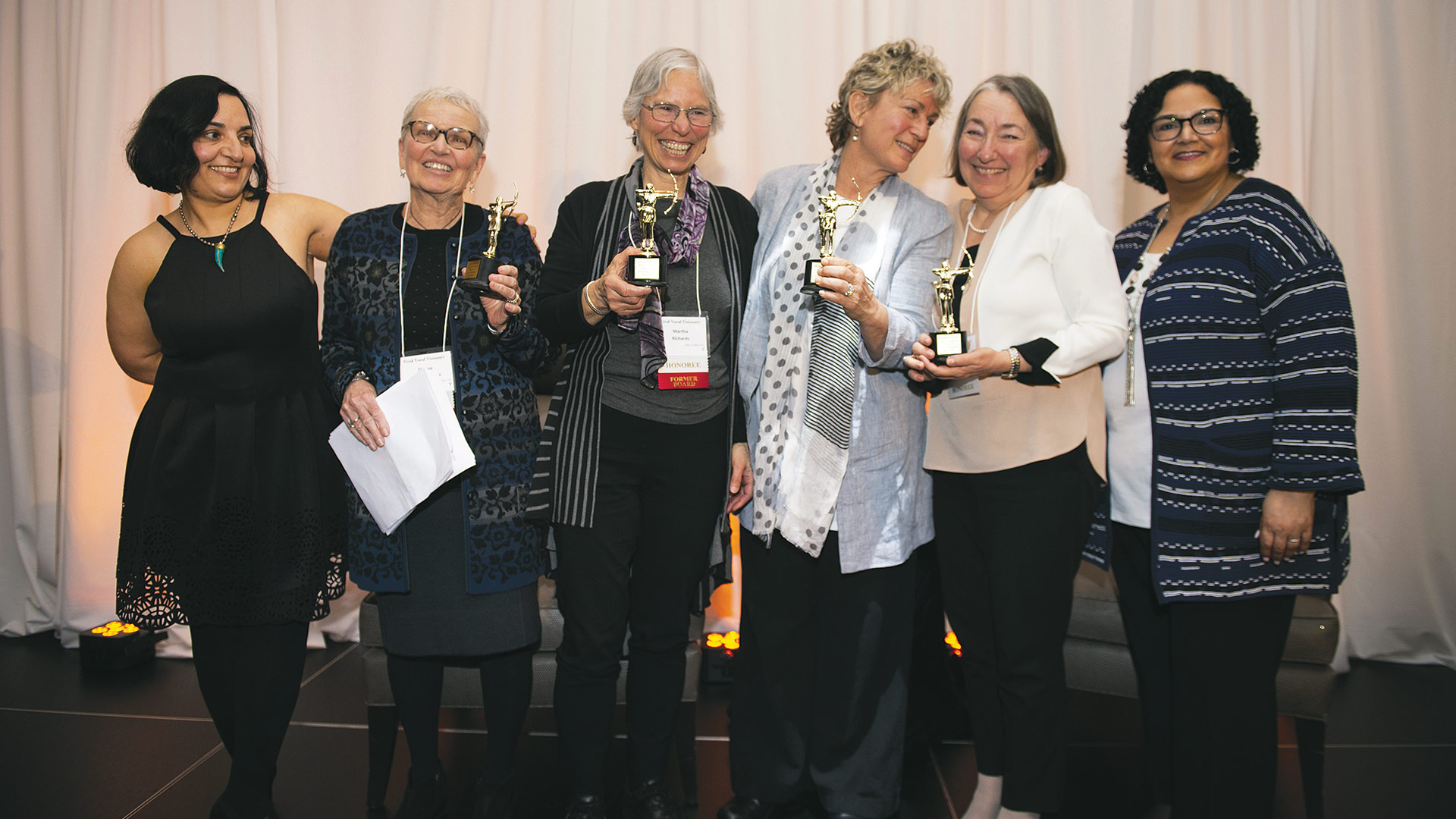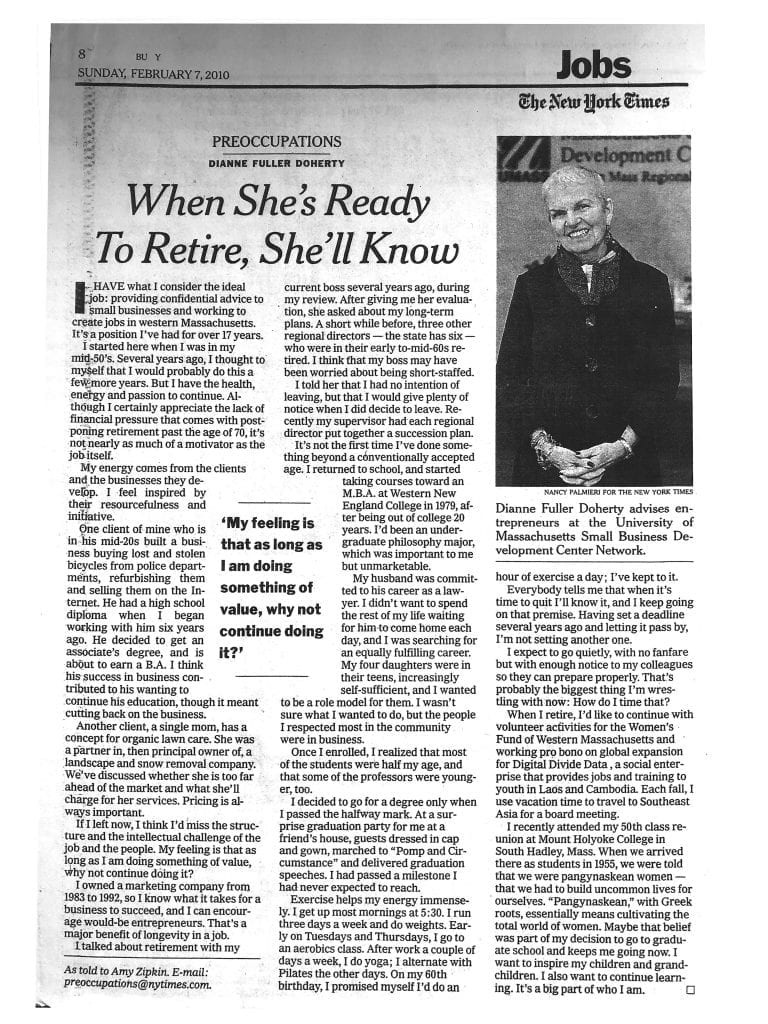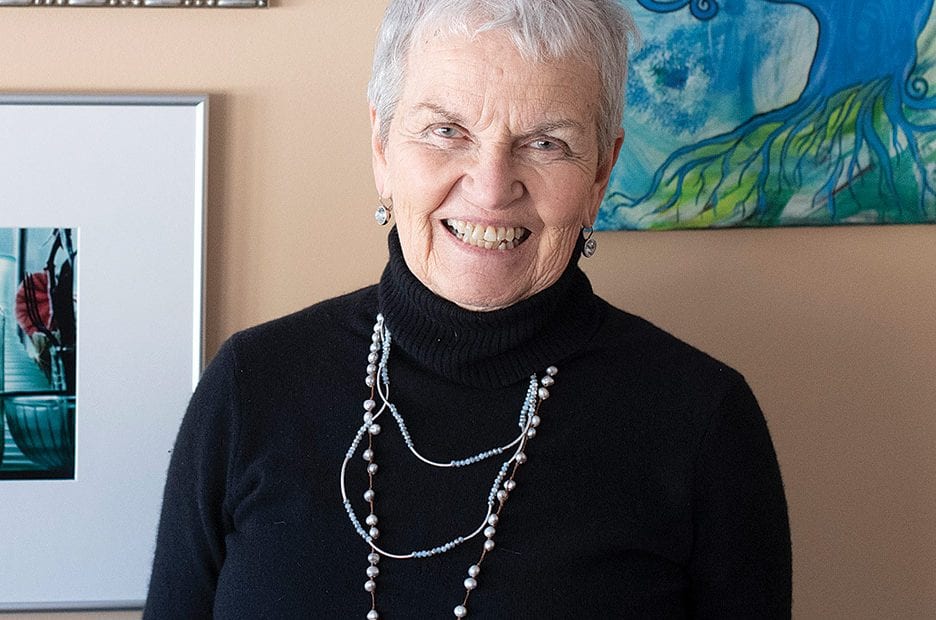She’s Retired … but Not from Her Role as a Difference Maker

Photo by Leah Martin Photography
Dianne Fuller Doherty has her own working definition of ‘entrepreneur.’
“Someone who’s resourceful,” said the now … well, let’s call it semi-retired director of the Massachusetts Small Business Development Center Network’s Western Mass. office, before elaborating in some detail.
“Successful entrepreneurs are willing to ask for help; many people, particularly young people, think they have to have all the answers themselves,” she explained. “They don’t, and they need to develop the willingness to seek help and not be ashamed to ask. It is amazing how many people have struggled with that.”
For more than 20 years, it was the MSBDC — and quite often Fuller Doherty herself — that entrepreneurs, including BusinessWest founder John Gormally, would turn to for such help and guidance with everything from financing a venture to marketing a product, to simply deciding if a concept had legs. Often, it didn’t, and she would help them come to that important conclusion.
It was immensely rewarding work — and it still is.
Indeed, even though she officially retired from the MSBDC in 2016, Fuller Doherty remains quite active — with everything from mentoring young entrepreneurs, and especially women, to serving on the boards at Valley Venture Mentors, Tech Foundry, and Western New England University, where she sits on the committee now searching for a successor to long-time president Anthony Caprio.
Fuller Doherty — who bylined a piece for the New York Times in 2010, one in a series of pieces spotlighting people working past, or well past, what would be considered retirement age — has always believed in keeping the calendar full, and today, four years after retiring and also losing her husband, Paul Doherty, to cancer, she does so with everything from yoga and Pilates to consulting and mentoring.
“My feeling is that, as long as I’m doing something of value, why not continue doing it?’ she asked rhetorically in the piece she wrote for the Times. And those words ring true as she continues to do a number of things of value.
Especially in her role as a mentor and, yes, a role model to entrepreneurs, including a number of women who have been steered in her direction, continuing work to build the region’s economy through the development and maturation of small businesses.
“I love helping people, and I learn more from any job than I’ve ever given to people,” she told BusinessWest. “And that’s definitely true with mentoring; you learn about new industries, jobs, and approaches. I learn so much from my clients and mentees.”
Throughout her life and her career, Fuller Doherty has been a strong advocate for women — she was one of the founders of the Women’s Fund of Western Massachusetts — and “ensuring they have full and equal share in economic, social, cultural, and political decision making,” as she put it. There is still some work to do, but overall, she believes great strides have been made.
And she feels the same about the region itself.
“We have a lot going for us here — there is quality of life, great colleges and universities, and wonderful communities in which to raise families,” she said. “It’s a great story, and we need to be telling it.”
For all that she has done — and all she continues to do — she’s a true Difference Maker.
Role Modeling
By now, most people know at least some of the Dianne Fuller Doherty story.
Born in upstate New York, she went to Mount Holyoke College, where she earned a degree in philsophy. She lived for a year in Boston after graduating and, while there, met third-year Harvard Law School student Paul Doherty and fell in love.
Paul contemplated heading west to Chicago and work in investments, but ultimately chose the law firm in Springfield where his father and grandfather both worked. And that’s where our story unfolds.

Dianne Fuller Doherty (second from left) and the other founders of the Women’s Fund of Western Mass., as well as its founding executive director, Kristi Nelson, were honored at an event in March 2019 at the Tower Square Hotel. Seen here are, from left, Donna Haghighat, CEO of the Women’s Fund, Fuller Doherty, founder Martha Richards, Nelson, Mimi Goldberg (accepting for the third founder, the late Sally Livingston), and Haydee Lamberty-Rodrigues, board chair of the WFMA.
Doherty admits to not knowing much about Springfield beyond its train station and the Student Prince restaurant, where her parents would take her to dinner while she was in college, but she quickly went about learning more. And by the ’90s, she was becoming a force in everything from business to helping women break through the glass ceiling.
Over the years, she became involved with institutions ranging from the Springfield Regional Chamber to the YMCA; from the World Affairs Council to Glenmeadow; from Bay Path University to the National Conference for Community and Justice.
When her four daughters were in their teens, Doherty, seeking to be a role model for them, first earned an MBA at Western New England College (20 years after she graduated from Mount Holyoke) and then went about looking for work — and maybe a career.
She started in Springfield City Hall working as a volunteer with the grants manager. “I wanted some experience, and I’d taken a grants course; I liked writing, and I liked to raise money,” she said, adding that all these talents would come into play later.
From there, she took a job with a marketing agency in Hartford, working primarily in business development.
“I didn’t know much about business development, but I could pretend pretty well,” she joked, adding that she enjoyed the work and, inspired to go into business for herself, partnered with Marsha Tzoumas and created a marketing firm that took their last names. The venture did well, eventually growing to 16 employees and a deep portfolio of clients, but it couldn’t survive the recession of the early ’90s.
“It was fun on the way up and hard when the economy changed and no one was spending any money on marketing,” she recalled, adding that she went on to work for Springfield Mayor Bob Markel before winning the job leading the regional office of the Massachusetts Small Business Development Center.
Her intention was to stay for a few years “until I figured out what I really wanted to do.” She stayed nearly a quarter-century because she quickly discovered this was, indeed, what she really wanted to do.
“It was such a fun job, and I got to know so many people up and down the Valley, because I was in Northampton one day a week and Amherst one day a week,” she recalled. “I really got to know the region.”
She used all kinds of adjectives to describe her work with entrepreneurs, including ‘rewarding,’ ‘fulfilling,’ ‘exciting,’ and also ‘challenging’ — that last one because entrepreneurs don’t need someone telling them what they want to hear. They want, or should want, what amounts to tough love.

This 2010 New York Times article makes it clear Dianne Fuller Doherty plans to do things — including retirement — on her own schedule and in her own way.
“You have to be encouraging — you never want to say anything negative, but you also want to be honest and realistic,” he said. “The best advice I give to people is to ask enough questions so that they can come to the right conclusion on whether this is the right time, or the right place, or the right financial backing to go forward.
“You let them come to the decision about whether it’s a ‘no,’” she went on. “And if it’s a ‘yes,’ then you just try to be as encouraging as possible and let them know that there are going to be highs and lows in any business, and the challenges will come. But the rewards will come also.”
Thinking Big
Overall, Fuller Doherty said she believes the growth and evolution of the region’s entrepreneurship ecosystem — which she is now an integral part of — is one of the better economic-development stories unfolding in the region.
She told BusinessWest that, while MGM Springfield has been a solid addition to the landscape, and the eds and meds sectors remain pillars of the economy, the development of small businesses — with the hope that they that will bring jobs and perhaps grow into larger ventures — is the best economic-development strategy moving forward.
“When you think about MassMutual, it started with one man in a little building at 101 State St.,” she noted. “We don’t know what the next new thing or the next new business sector might be — it might be something not even known to us yet — but the key is to support and mentor people with ideas and help them turn those ideas into businesses and jobs.”
But there are many other good stories, she went on, listing everything from revitalization of Springfield’s downtown to new businesses emerging from the science labs at UMass Amherst and other area schools; from the growing strength of the area’s higher-education sector to this region emerging as a solid, affordable alternative to Greater Boston.
It’s a message that needs to be delivered — both to other markets in the Northeast and perhaps beyond, and in this market as well, she said, adding that a good deal of work remains to be done when it comes to building pride within the region.
“When I had my agency, my mantra was ‘marketing starts in the toes of the bus boy in the kitchen,’ and I truly believe that,” she said. “If you get him excited about what he’s doing serving people, he’s enthusiastic about not only his job but the region, and he shares that with other people, and they get excited; there’s a ripple effect. It’s the same with people living and working in this area.”
But perhaps the story she’s most intrigued by, and most proud of, is how the scene has changed for women over the decades.
For evidence, she points to the number of area colleges now led by women; in addition to the women’s schools, Springfield College, Holyoke Community College, Greenfield Community College, and Berkshire Community College all have a woman in the president’s office. And also to the number of businesses and nonprofits, as well as many new business ventures, being led by women.
‘When you look at the number of women leaders in this valley … it wasn’t this way 20 or 30 years ago; there’s been a real concentration of effort to promote women,” she explained. “Between women college presidents, not-for-profit CEOs, and for-profit CEOs, this is a very different place.”
Bottom Line
Fuller Doherty has had a lot to do with this region becoming that different place.
Over the years, she’s been a business owner, trusted consultant, mentor, role model, advocate for women, and cheerleader of sorts for the Pioneer Valley. And with most all of those titles, we can and do still use the present tense, which is a good thing for this region.
The headline placed over that aforementioned New York Times article from a decade ago read, “When She’s Ready to Retire, She’ll Know It.” Fuller Doherty may have retired from the MSBDC, but she hasn’t retired from being active in this region or from motivating and helping others to fulfill their specific dreams.
In short, she hasn’t retired from being a Difference Maker.
George O’Brien can be reached at [email protected]









